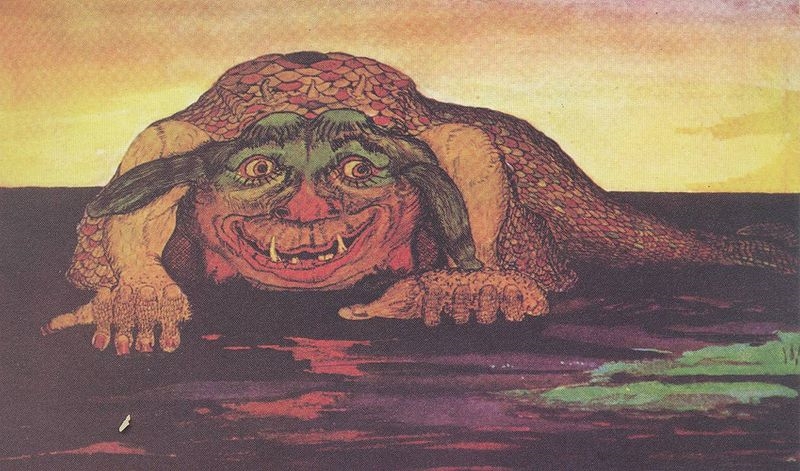When Google was a real monster
The bicentenary of Austen’s Pride and Prejudice is, perhaps, the most towering anniversary on the literary calendar of 2013. Yet this year also marks the centenary of a far humbler text, a little-known children’s book by an author whose life holds surprising significance for us today.
Once upon a time, Google was a monster. If one were in a mood for metaphors one might describe the fact-spewing engine of the internet today as a sort of beast, but once upon a time, Google was literally a monster. At least, that is, according to Vincent Cartwright Vickers in The Google Book, published one hundred years ago in 1913. In an illustrated series of poems, the young reader encounters creatures such as Pleeceman birds, the Flabbytoes, the Soft-Nosed Wollop, the Shiver-Doodle and finally, of course, “that horrid Google” himself. Reflecting his interest in zoology (particularly ornithology), Vickers’ simple picture-book is grandfather to Ricky Gervais’ Flanimals and the other improbable bestiaries that continue to delight children today.
It is surprising then, to learn that the creator of this marvellous menagerie was, at the time of the book’s conception, not an artist or writer by trade, but a director of the Bank of England. A banker? Surely not! But before hissing too loudly we should remember that unlike The Google Book in its colourful dust-jacket, Vickers was not to be judged by his cover. Uncomfortable with the Governor’s policies, Vickers resigned from his role in 1919 and wrote an eloquent critique of English Banking in Economic Tribulation; an unlikely sibling to The Google Book, and decidedly less effective as a bedtime read.
In Economic Tribulation, Vickers discusses the faults of the banking industry in comments depressingly applicable to our own recessionary era. Lamenting the fate of a country which leaves its economic policies to so-called experts, Vickers complains “the experts have hopelessly failed. What is needed is a little less economics and a little more common sense.” In a moment of astonishing optimism, he goes on to beseech the bankers to operate within the dictates of moral decency: “we ask that you carry on your affairs as at present, except that you be honest” – a statement worth repeating in 2013.
When V.C. Vickers brought his birds and beasts to life in the poems and illustrations of The Google Book, he could not have known that the generation of children for whom he wrote, and their children in turn, would repeat the economic mistakes that he warned against so long before our own financial crisis. Today, the Virtual Revolution has catapulted our lives into a new millennium of discovery, we face new and seemingly unprecedented dilemmas and, of course, ‘Google’ is no longer a monster from a children’s book.
But the life of this obscure, Victorian-born English writer is testament to those things that have changed very little and, in a year of great centenaries, it seems only fair to add a mark on the calendar for The Google Book and its obscure yet fascinating author.

Comments